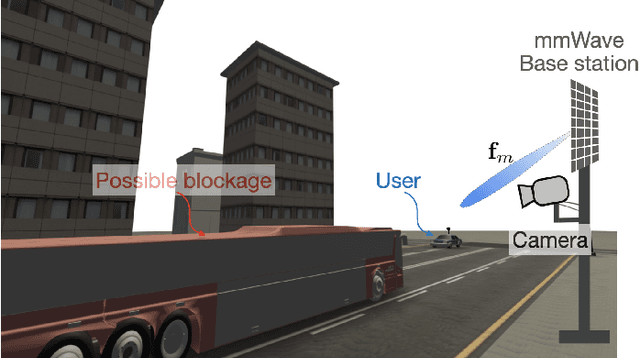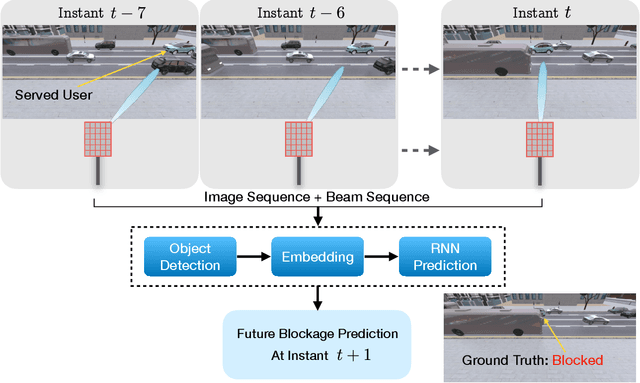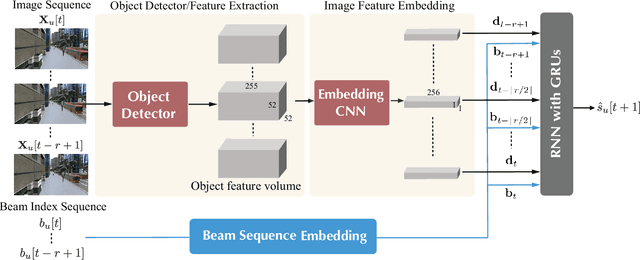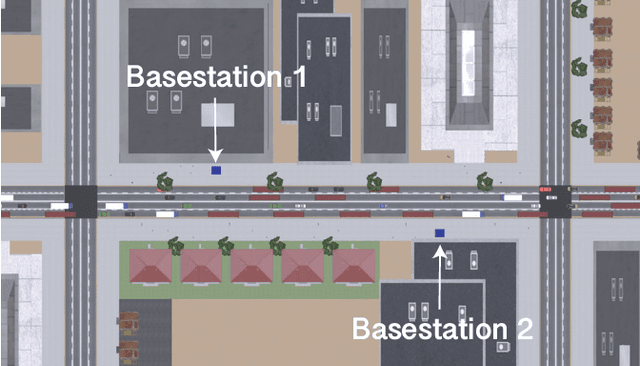Vision-Aided Dynamic Blockage Prediction for 6G Wireless Communication Networks
Paper and Code
Jun 18, 2020



Unlocking the full potential of millimeter-wave and sub-terahertz wireless communication networks hinges on realizing unprecedented low-latency and high-reliability requirements. The challenge in meeting those requirements lies partly in the sensitivity of signals in the millimeter-wave and sub-terahertz frequency ranges to blockages. One promising way to tackle that challenge is to help a wireless network develop a sense of its surrounding using machine learning. This paper attempts to do that by utilizing deep learning and computer vision. It proposes a novel solution that proactively predicts \textit{dynamic} link blockages. More specifically, it develops a deep neural network architecture that learns from observed sequences of RGB images and beamforming vectors how to predict possible future link blockages. The proposed architecture is evaluated on a publicly available dataset that represents a synthetic dynamic communication scenario with multiple moving users and blockages. It scores a link-blockage prediction accuracy in the neighborhood of 86\%, a performance that is unlikely to be matched without utilizing visual data.
 Add to Chrome
Add to Chrome Add to Firefox
Add to Firefox Add to Edge
Add to Edge